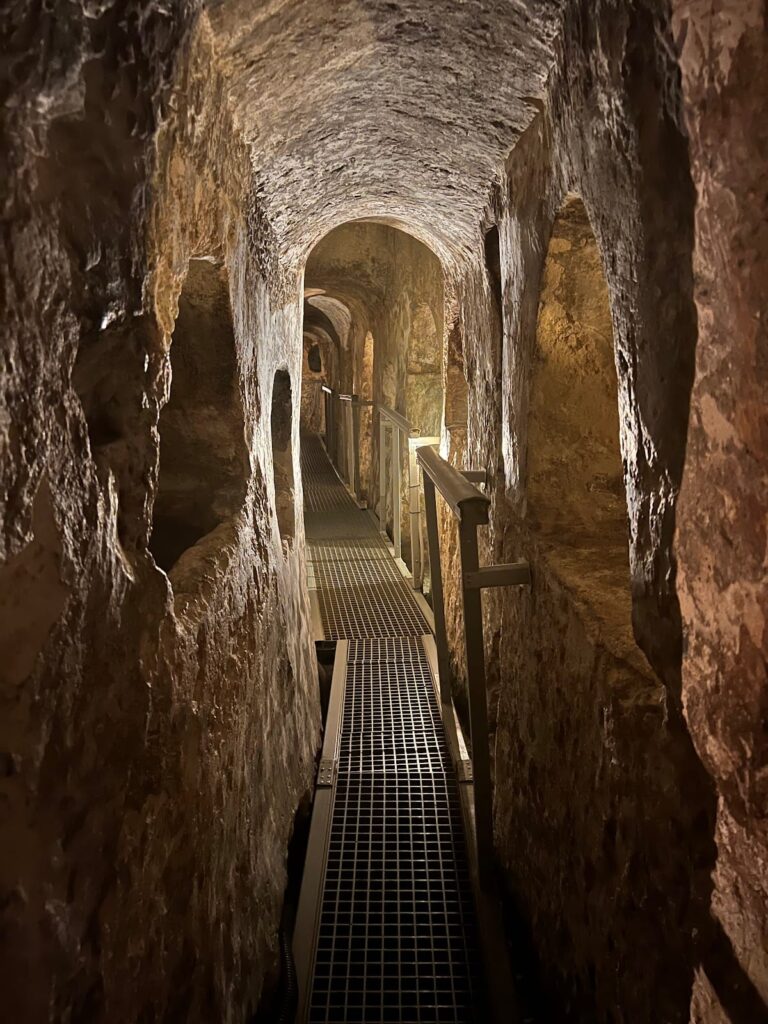Saint Agatha Catacombs: Early Christian Burial Site and Museum in Malta
Visitor Information
Google Rating: 4.4
Popularity: Low
Google Maps: View on Google Maps
Official Website: stagathamalta.com
Country: Malta
Civilization: Roman
Remains: Burial
History
The Saint Agatha Catacombs are located in Triq Sant Agata, Malta. The site reflects early Christian burial and worship practices common in Malta’s ancient past. The catacombs served as a place of religious significance, particularly connected to Saint Agatha, a revered Christian martyr.
The crypt within the catacombs was actively used for worship until 1647. In 1666, a new altar was constructed over an earlier rock altar to accommodate an alabaster statue of Saint Agatha.
Remains
The Saint Agatha Catacombs consist of a crypt featuring a main altar built atop an earlier rock altar. This altar was specifically designed to hold an alabaster statue of Saint Agatha.
The adjacent museum displays a diverse collection of artefacts uncovered within the catacombs. These include Egyptian items, pottery fragments, and glass remains, illustrating the variety of materials associated with the site. Among the finds is a statue of Aphrodite, indicating cultural influences or offerings beyond Christian symbolism.
A notable exhibit is a mummified crocodile from the Nile, which highlights the range of objects connected to the catacombs. Religious items such as chalices, decorations from Saint Agatha’s Chapel, and small ancient books and bibles are also preserved. Some texts are so minute they require a microscope to read.
The museum also stores statues used in the Good Friday exhibition, linking the site to local religious traditions. These artefacts and the preserved altar remain in situ or carefully curated, providing insight into the catacombs’ history.








